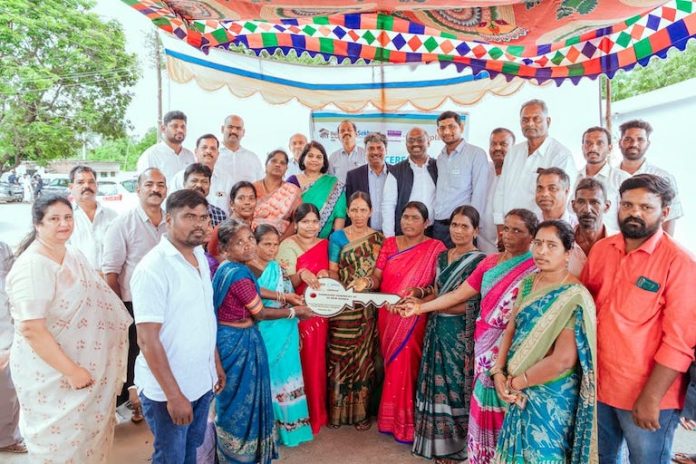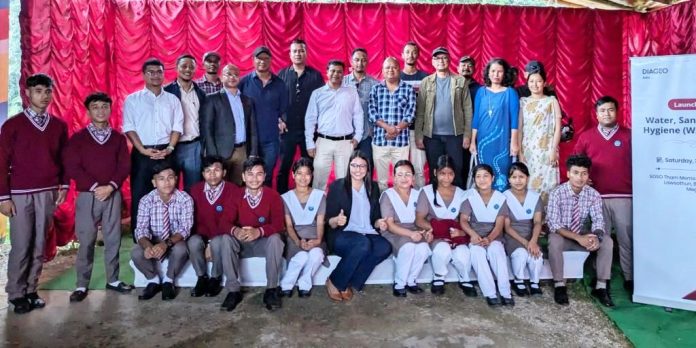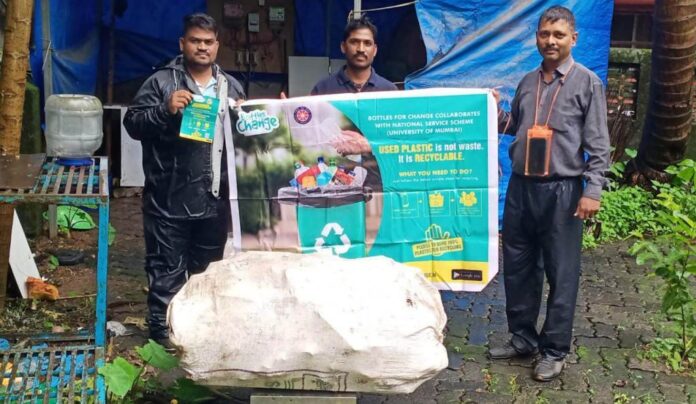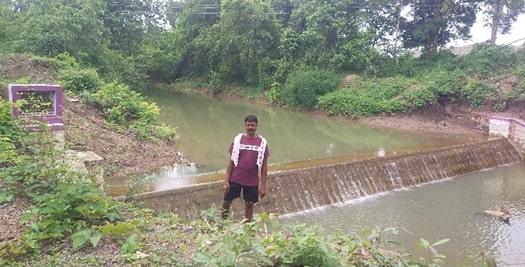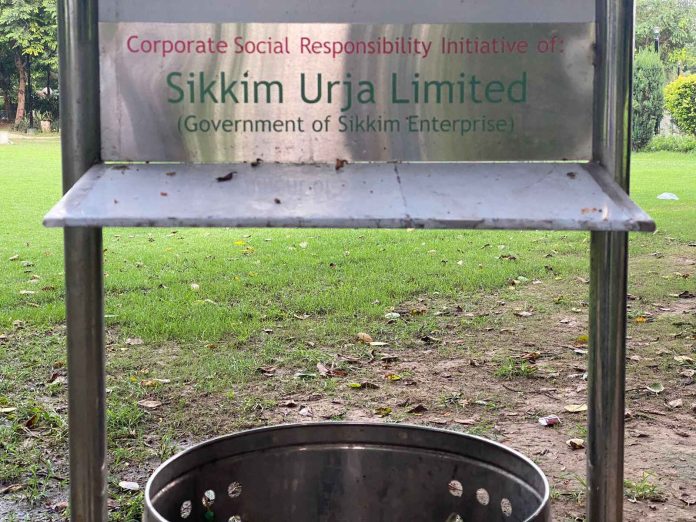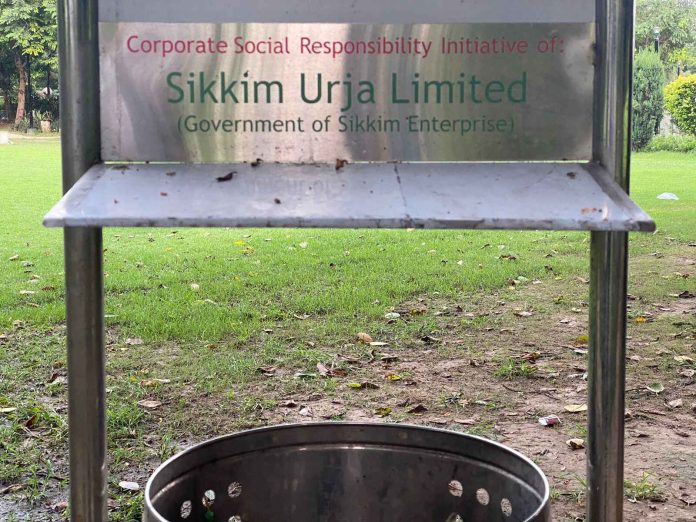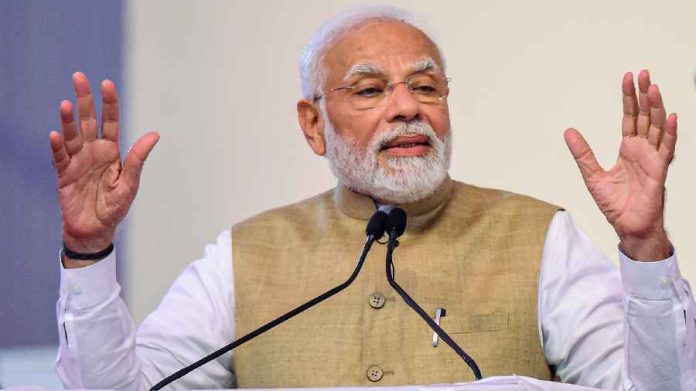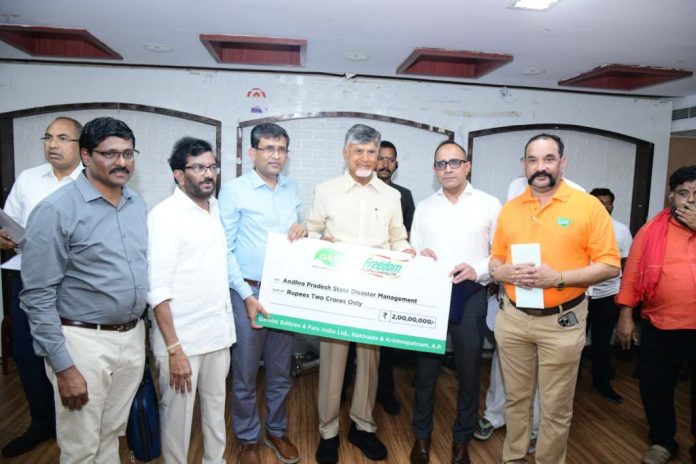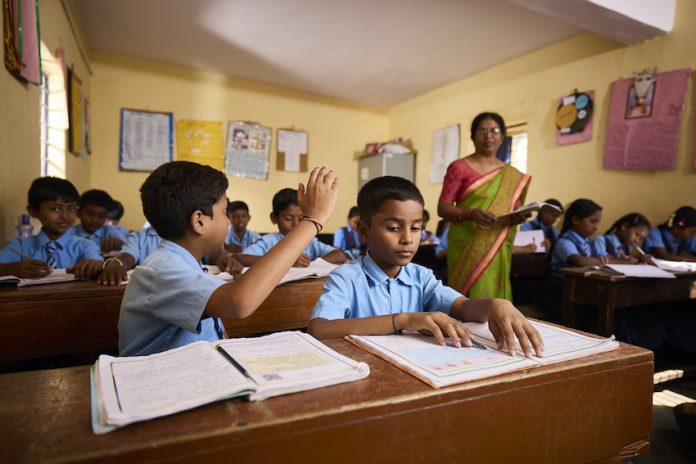CSR partnership to launch Water, Sanitation and Hygiene (WASH) projects in Meghalaya
Meghalaya, India: Diageo India (United Spirits Ltd.) in partnership with BharatCares, a social impact organisation, launched Water, Sanitation and Hygiene (WASH) projects in Seng Khasi Upper Primary School (Mawlai Khasi Hills) and Soso Tham Memorial School (Lawsohtun) in Meghalaya. The inauguration ceremony was held in the presence of members from Diageo India and BharatCares. The projects will benefit over 120 students and staff members by supporting a healthier, safer, and more conducive learning environment.
Through this initiative, Diageo India and BharatCares will set up a dedicated RO plant, renovate drinking water station with modern filtration system along with the school boundary wall and toilets at the Seng Khasi Upper Primary School. In addition, a new classroom with a dyna roof, separate toilets for boys and girls along with a handwashing station, an RO plant and drinking water station will be constructed at the Soso Tham Memorial School.
Navdeep Singh Mehram, Head – CSR & Sustainability, Diageo India said, “At Diageo India, preserving water for life is a key priority under our Society 2030 ESG action plan. We have been championing water stewardship within our communities by investing in improving access to WASH. Together with our NGO partner BharatCares, these initiatives will help enhance the overall well-being by creating a healthier, hygienic and beneficial environment for the students and the staff members.”
Manoviraj Singh, Vice President-CSR & Government Practice, CSRBOX Foundation said, “We are delighted to continue our collaboration with Diageo India on this community engagement initiative. These projects will help improve the overall infrastructure of the schools by installing water purification systems, upgrading sanitation facilities, and enhancing structural elements. Through these initiatives, our aim is to provide students with a better learning environment and access to essential facilities.”
Diageo India has launched multiple WASH projects impacting communities across 8 states in India.
Disclaimer: This media release is auto-generated. The CSR Journal is not responsible for the content.
CSR Partnership with Panjab University to establish on-Campus Material Recovery Facility under ‘Bottles for Change’ initiative
Chandigarh, India: Bisleri International Pvt. Ltd., through its flagship CSR initiative ‘Bottles for Change,’ proudly announces the official launch of its campus activities in partnership with Panjab University, Chandigarh. This landmark event, which marks the culmination of a collaborative effort that began in September 2023, includes the signing of an MoU today to develop a Material Recovery Facility (MRF) on campus – a significant step towards sustainability. The event attracted over 300 enthusiastic students who came together to support sustainable practices and recycling efforts on campus.
The event was honored by the presence of distinguished guests Prof. (Dr.) Renu Vig, Vice-Chancellor Panjab University; Prof. (Dr.) Yajvender Pal Verma, Registrar Panjab University and Mr. Angelo George, CEO of Bisleri International Pvt. Ltd.
Mr. Angelo George, CEO Bisleri International, commented, “Our collaboration with Panjab University underscores the potential of young minds in driving sustainable change. Through ‘Bottles for Change,’ we aim to create a movement that not only educates but also inspires responsible plastic usage and disposal. The overwhelming participation and commitment from the students and faculty are truly encouraging, and we are excited to continue this journey toward a greener future.”
Key highlights of the event included the MoU signing for establishing on-campus Material Recovery Facility, the launch of the ‘Bench of Dreams’ made from used plastics, and the installation of used plastic collection banks at strategical places of the university to encourage responsible disposal and recycling. An agreement with Esperanza, the recycling partner for Chandigarh and Punjab, was also finalized to ensure collection of used plastic and sending for recycling. The event further marked the flag-off of a vehicle dedicated to regular plastic waste collection within the university & city. Bisleri International also recognized campus partners like Horticulture Department, Enactus, NSS, and Rotaract for their invaluable support of the ‘Bottles for Change’ initiative.
Prof. (Dr.) Renu Vig, Vice-Chancellor of Panjab University highlighted the significance of the initiative, stating, “Instilling sustainable values in our students is crucial, as they are the future leaders who will shape our world. Panjab University is committed to playing a pivotal role in this environmental movement, ensuring that our campus serves as a model of sustainability.”
Earlier this year, Bisleri International made significant strides in its sustainability efforts by launching the ‘Bench of Dreams’ initiative in collaboration with Mouth and Foot Painting Artists (MFPA). As part of the ‘Bisleri Greener Promise’ campaign, this project aims to install 1,000 recycled plastic benches across landmark locations in India. The recent inauguration of 25 benches at Nagar Nigam and Ram Mandir in Ayodhya, 30 benches at Sabarmati River Front further exemplifies Bisleri’ s commitment to environmental conservation and community engagement.
Disclaimer: This media release is auto-generated. The CSR Journal is not responsible for the content.
CSR initiative eliminates Gowari farmers’ water insecurities with Cement Nala Bund
New Delhi, India: ACC, the cement and building material company of the diversified Adani Portfolio, is committed to facilitating modern farming and efficient water management solutions in communities where it operates. Through CSR efforts, Adani Foundation has been able to significantly impact the lives of 18 farmers by addressing long-standing water scarcity issues in Gowari village near ACC Chanda.
Gowari village, located in the Wani Taluka of Yavatmal district, has faced persistent water shortages due to unreliable rainfall and arid conditions. For 41-year-old farmer, Bhaskar Ramchandra Wasekar, this challenge was a daily struggle. With only 4 hours of water per day from his borewell, Bhaskar’s ability to cultivate his 8.07 hectares of land was severely restricted, impacting his income and future prospects.
The Adani Foundation collaborated with Dilasa Janvikas Pratishthan to initiate a project to build a Cement Nala Bund (CNB), with the aim of improving water retention and recharging the groundwater table. Completed in the 2023-24, the CNB has proven transformative. Water availability on Bhaskar’s land has increased by 75% to 7 hours per day, enabling him to expand his cultivable area by 11.78%, from 6.15 to 7.10 hectares.
This expansion has allowed Bhaskar to diversify his crops, including the addition of water-intensive chillies, significantly boosting his income by 35.46% to Rs. 3.22 lakh annually. “The CNB has been a blessing,” says Bhaskar. “I no longer worry about water for my crops. Now, I can grow more, explore new crops, and ensure a secure future for my family. In all, similar impacts are seen across 25 hectares of farmland owned by 18 farmers from the village.
ACC and the Adani Foundation’s commitment to sustainable community development is highlighted through the collaborative efforts to drive positive, life-changing results, as seen in the CNB project. The project not only enhances the livelihoods of Gowari’s farmers but also instills hope and resilience within the community.
Disclaimer: This media release is auto-generated. The CSR Journal is not responsible for the content.
Sikkim Urja Limited Visible at the biggest Public Park of Delhi while facing FIR from its own People
Strolling across the green covers of Nehru Park, one can spot something inside it that is not so Delhi, the Sikkim Urja Limited Steel Dustbins as part of their CSR responsibility. Populating the entire park, these dustbins are strong and durable enough for the moody weather as well as people of the capital city. What
are these ‘Sikkim Urja Limited’ or ‘SUL’ Dustbins?
Sikkim Urja Limited builds a 55 km Timebomb
Formally known as the Teesta Urja Limited, this Sikkim government public enterprise has been working towards hydro-electric power empowerment across the landscape of India. Since its inception in 2005, SUL has been involved in the production, collection and distribution of electricity using hydro-electric dams.
The company’s biggest dam project, on Teesta River located at Chungthang and Mangan in North Sikkim district, was deemed to generate 1,200 MW of energy. The project started making profit for the first time since last year in 2023, in which the Sikkim government has 60.08 percent share. The project valuation was around ₹25 thousand crore. But in October 2023, the project got washed away in a flash flood, leaving approximately 30 people missing.
Environment based journal ‘Down To Earth’ reports that Teesta River has the maximum number of sediments and one cannot imagine building a huge cement structure over the marshy riverside. Teesta River is a 500 km river that originates from the Eastern Himalayan ranges of Pauhunri. In India, it flows through the state of Sikkim and West Bengal to later meet the river Bhramaputra in Bangladesh. The area became more prone to earthquakes after the building of the dam as it altered the water level around the region. This is called Reservoir Induced Seismicity (RIC). RIC made people living around Teesta river particularly vulnerable, and made the Teesta river mega dam ‘a 55 km timebomb’.
The Dustbins of Nehru Park
It is ironic that the Corporate social responsibility of this sikkim based enterprise, as stated in its own CSR policy preamble, entails environmental sustainability. On one hand, SUL’s mega developmental project has been unsustainable for river Teesta while on the other hand, the company installed dustbins across a strategic natural habitat in Delhi.
The government enterprise SUL, post its profit from the project, has been diligent with its corporate social responsibility. As part of its CSR, URJA has installed many dustbins across the biggest public park of Delhi: the Nehru Park. Covering a stretch of 80 acres, the park is frequented by commoners, bureaucrats, politicians, students and foreign diplomats alike.
Because of its central location at Chanakyapuri and its tranquility, many chose to picnic inside the park, especially on weekends. This creates massive amounts of trash, usually disposed carelessly across the green floor of the park. URJA’s initiative of installing dustbins will not only support the already installed bio waste management technology at Nehru Park but will also render its landscape cleaner.
This is not the only CSR responsibility of SUL that has made news. In its home state, the semi-government enterprise conducted a skill training program counseling the youth of Sikkim. The counseling session conducted on 15th July 2023, the National Youth Skill Day, promoted training in new age trades like multimedia journalism, homestay host, animation to automotive electrician. While in other parts of India, SUL has initiated many other CSR responsibilities like AC ambulances, park construction, etc. As per the company’s annual report, around Rs. 5.72 Cr have been spent alone on CSR responsibilities in the financial year 2020-21.
CSR is always ‘For The People’
The Corporate Social Responsibility, under the Company’s Act of 2013, ensures that large profit making businesses contribute to the general social upliftment of the society. And so in all CSR initiatives, it is the people who come at the center. The case with Sikkim Urja Limited at the moment is that in spite of its magnanimous presence in the most important location in the capital city Delhi, the company is facing lawsuits from its own people of Northern Sikkim, after the flash flood.
“We are united in our belief that rebuilding the dam is not a safe option for us. Right now, our top priority is ensuring the safety and security of our community. It’s crucial that we carefully assess all potential risks and actively involve the local residents in any future developmental plans.”, a local Chungthang resident reportedly said.
All Senior Citizens Aged 70 and Above will be covered under Ayushman Bharat Scheme: Centre
Now, all senior citizens aged 70 and above will be covered under Ayshman Bharat Scheme. The Union Cabinet, chaired by Prime Minister Narendra Modi, approved the proposal of providing health coverage to all the senior citizens aged 70 and above irrespective of their income under the flagship scheme, Ayushman Bharat Pradhan Mantri Jan Arogya Yojana (AB PM-JAY). This will bring approximately 4.5 crore families, with six crore senior citizens under the purview of the scheme, wherein they will be able to avail ₹5 lakh free health insurance cover on a family basis.
This move has fulfilled one of the promises made by the BJP in its agenda. The eligible senior citizens would be issued a new distinct card under the AB PM-JAY.
Details of the Coverage
Under this initiative, the senior citizens of the age 70 and above belonging to families already covered under the AB PM-JAY will get an additional top-up cover up to ₹5 lakh per year for themselves (which they do not have to share with the other members of the family who are below the age of 70). All other senior citizens of the age 70 and above will get a cover up to ₹5 lakh per year on a family basis.
Senior citizens of the age 70 and above who are already availing benefits of other public health insurance schemes such as the Central Government Health Scheme (CGHS), Ex-Servicemen Contributory Health Scheme (ECHS), Ayushman Central Armed Police Force (CAPF) may either choose their existing scheme or opt for AB PM-JAY. It has been clarified that senior citizens of 70 years and above who are under private health insurance policies or Employees’ State Insurance scheme will be eligible to avail benefits under the AB PM-JAY.
“The AB PM-JAY is the world’s largest publicly funded health assurance scheme which provides health cover of ₹5 lakh per family per year for secondary and tertiary care hospitalisation to 55 crore individuals corresponding to 12.34 crore families,” said a release by the Central government.
All members of the eligible families irrespective of age are covered under the scheme. The scheme has covered 7.37 crore hospital admissions, including 49% women beneficiaries. The public has benefited to the extent of over ₹1 lakh crore under the scheme.
Continuous Expansion
The Health Ministry added that the AB PM-JAY scheme had witnessed continuous expansion of the beneficiary base. Initially, 10.74 crore poor and vulnerable families comprising the bottom 40% of India’s population were covered under the scheme. Later, the Government of India, in January 2022 revised the beneficiary base under AB PM-JAY from 10.74 crore to 12 crore families considering India’s decadal population growth of 11.7% over 2011 population.
“The scheme was further expanded to cover 37 lakh ASHAs/AWWs/AWHs working across the country and their families for free healthcare benefits. Taking the mission ahead, the AB PM-JAY would now provide free healthcare coverage of ₹5 lakh to all citizens of the age-group of 70 years and above across the country,” the Ministry noted.
Academia meets Art: An unusual pairing helps find creative solutions to mental health issues
It is no news that artistic interventions have a huge impact on mental well-being. Where formal, structured counselling techniques have failed, arts-based methods like Dance Movement Therapy, Music Therapy, and Drama Therapy have proved to be a breakthrough practice for many people. As these practices become more and more popular in India, it is imperative to look at its current practice critically to understand how this benefits the people.
Arts-based methods of learning
Arts-based methods were first developed in educational settings most likely to adapt existing pedagogy to students with special needs like learning disabilities, physical disabilities and intellectual disabilities. These methods were developed as an alternative to mainstream education that put importance on rote learning, examinations and written abilities. Using musical rhythms to learn how to count, and theatre exercises to practice social behaviour in everyday scenarios are just some examples that utilised artistic process in education.
Impact of Arts on Health and Fitness
The other field in which the arts have lent a unique contribution to is Health and Fitness which have been in the spotlight for the past couple of decades as our nation develops. The definition of health is no longer limited to physical health. The mental and emotional health of a person is just as important in current discourse.
Thankfully, arts-based practises like dance have proved to be just as effective when it comes to mental ailments. Engaging your mind and body in an activity can improve your focus as it forces you to be present in the moment. It can boost your mental stamina as learning something new involves repetition and a healthy challenge. Moving physically will give your energy levels a boost. It promotes creative thinking and problem-solving skills. It allows you to meet new people who may struggle with similar issues which may help feeling less alone.

A deeper look into this space of arts-based interventions for health brought to the fore the work of Kathak dancer Shivani Jatar. Currently living in the UK, and originally from Mumbai, Shivani has worked on two projects that utilise techniques from her extensive Kathak dance training to create innovative ways to reach new audiences and talk about difficult subjects such as surviving chronic illnesses and identity-related confidence building.
Most recently she was a part of Creative Labs programme supported by the Cultural Institute, University of Leeds andBradford Producing Hub. Paired with Dr Lucy Prodgers, a lecturer in Psychology at the University of Leeds, whose research into the narratives around masculinity of patients with chronic health conditions like Crohn’s disease became the foundation of their exploration.
Shivani says “Dr Lucy and I agreed that academic studies often fail to fully comprehend the emotional, psychological, inter-personal effects of ill-health which affects the quality of recovery and rehabilitation that is available to them. We also agreed that artistic interventions like the one we embarked on was a great way to bridge this gap between academic research and the people facing such chronic health issues”.
For this project they presented three poems that Dr. Lucy wrote using the phrases, expressions and stories of her interviewees. The poems were rife with emotions ranging from defeated and painful to hopeful and heroic. “I used my training in Abhinaya (storytelling aspects of Kathak) to embody these emotions and help the viewers understand the extent of the issue”.
“Personally, it was an enriching experience as I performed to a new audience on a subject that matters to them using the vocabulary of Kathak. As with any classical dance style, Kathak can be exclusionary in its practice. There are strong cultural codes that don’t necessarily have the same value in contemporary contexts. So, as a contemporary practitioner of a classical dance style, I believe it’s imperative to find ways to make Kathak accessible to larger audiences by undertaking projects like these. In this instance, I was able to use Navarasafrom the Rasa Theory to talk about the patients’ stories of survival and their emotional struggles”.
Speaking of her other project, Shivani reflects “Earlier this year, I had the opportunity to test out a creative premise under the Elevate Residency supported by Open Source Arts, a multidisciplinary arts organisation in Leeds. I developed ‘Namesake’ on the premise that a person’s given name and its meaning had the potential to help mend people’s relationship to their identities, build confidence and embody new life purposes. We live in difficult times, and young people are at high risk of facing mental health issues. Thus, I would like to develop this further as an interactive workshop with the aim of empowering young people.”
One could find numerous examples of artistic ideas that have emerged in such interdisciplinary spaces. In the last two decades, there has been an uptick in lifestyle-related medical conditions that are chronic in nature and do not have a recourse in formal medicine. Rather, it is after treatment from doctors that people tend to look for alternative practises that would help them manage their condition in the long term. This is where yoga, Pilates, Zumba, dance and other movement forms have come to the rescue. What remains certain is the undeniably positive impact of arts-based methods on physical and mental health and well-being.
The fact that some work like that of Shivani Jatar demystifies classical dance by inviting people to engage with it in an informal environment is also a bonus. Making classical dance more relevant in community settings is just as essential to its evolution as is its performance practice.
Views of the author are personal and do not necessarily represent the website’s views.
 Shivani Jatar is a professional dancer, teacher and choreographer based in Leeds, UK. Originally from Mumbai, she trained extensively in Kathak before branching out to learn other disciplines. Shivani is dedicated to finding contemporary expressions of classical dance through her multidisciplinary practice.
Shivani Jatar is a professional dancer, teacher and choreographer based in Leeds, UK. Originally from Mumbai, she trained extensively in Kathak before branching out to learn other disciplines. Shivani is dedicated to finding contemporary expressions of classical dance through her multidisciplinary practice.
Rs 2 crore donated to Andhra Pradesh State Disaster Management Fund towards Flood Relief operations
Andhra Pradesh, India: Gemini Edibles & Fats India Ltd (GEF India) the makers of Freedom Healthy Cooking Oils today contributed a sum of Rs. 2 Crore towards the Andhra Pradesh State Disaster Management Fund to support the relief and rehabilitation work being undertaken by the Government in the state of Andhra Pradesh. The GEF India officials including Mr. Akshay Chowdhry Group Vice President, Mr. P Chandrashekhara Reddy, Sr. Vice President, Sales and Marketing, Gemini Edibles and Fats India Ltd handed over the cheque of Rs. 2 Crore to Shri N. Chandrababu Naidu, Hon’ble Chief Minister, Govt of Andhra Pradesh.
The severe rains over the past week have wrecked a havoc in the state of Andhra Pradesh causing floods and widespread destruction of homes, crops and infrastructure, resulting in loss of lives, property and livelihood. GEF India stands in solidarity with the State during this challenging time. The company is committed to lending a helping hand and aiding the State Government to provide immediate and effective assistance to the flood-affected regions and support the ongoing relief operations.
Mr. Akshay Chowdhry, Group Vice President, Gemini, Edibles & Fats India Limited (makers of Freedom Healthy Cooking Oils) said “We are deeply moved by the resilience and strength of the people affected by this disaster. We hope that this contribution will provide some relief and support and aid in the crucial work being done on the ground. We stand with the people of Andhra Pradesh during this challenging time and are committed to supporting them.”
According to Mr. P Chandrashekhara Reddy, Senior Vice President, Gemini, Edibles & Fats India Limited (makers of Freedom Healthy Cooking Oils), “At Freedom Healthy Cooking Oils, we believe in the power of collective action and corporate responsibility. The recent floods have caused immense hardship for many families in Andhra Pradesh. Our contribution to the Andhra Pradesh State Disaster Relief Fund is a testament to our commitment to aid those in distress and support the state’s recovery efforts.”
Disclaimer: This media release is auto-generated. The CSR Journal is not responsible for the content.

